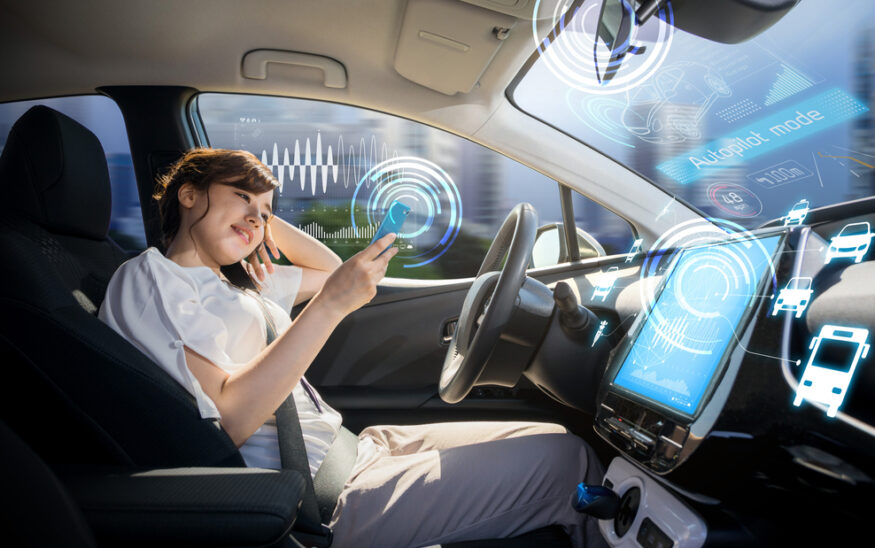Driverless Cars in a Dumbed Down World
The driver remains the first line of defense, but this is starting to change
John Metzger //November 17, 2017//


Driverless Cars in a Dumbed Down World
The driver remains the first line of defense, but this is starting to change
John Metzger //November 17, 2017//

As Americans, driving is one of our greatest expressions of personal freedom. But the responsibility that makes such freedom possible is the first casualty of the driverless car revolution.
Drivers have already become more passive with increased reliance on improved safety technology. Seat belts, traction control, ABS and air bags work during or immediately before an accident. The driver still remains the first line of defense, but this right is starting to change.
Today, technology has become more active, taking the driver further out of the picture and making him more passive. TV ads proudly depict distracted drivers being saved by a smart car detecting an impending collision, or worse, letting the careless driver know they are drifting into the oncoming lane. Not to worry, the car self-corrects. The relieved driver can laugh it off and continue chatting with friends, taking selfies and texting. Why bother paying attention at all if we start getting used to this? We have programmed our younger generation to think that not only do we all get a trophy, we’re also always entitled to a safe space (whether that space is safe or not).
Now the move is on to take the driver completely out of the picture. The technology may remove human arrogance and hostility, but will the driverless car have the gut instinct and intuition to get out of trouble and tight spots?
Since they are mostly being tested elsewhere, will driverless cars perform as well in Colorado as they will in say, New York? Will the driverless car sense frozen dew or a sharp rock on a mountain road? What if its radars, cameras and lasers get slimed? Will a driverless car eyeball an oil slick and swerve away, or drive into it, lose traction and slide into oncoming traffic? How will it use its judgment to react to a bicycle in a tight, guard-railed lane with a fast motorcycle passing it at the same time? Will the driverless car in front of us dodge the deer? Will it juke around the broken tail pipe, or just kick it up into our windshield? If a driverless car wants to pass a semi crawling up the mountain in the slow lane, will it see the fast-mover coming up from behind before it begins its pass? What if a car is passing a driverless car at high speed at the ragged edge of the passing zone, and there is another vehicle coming from the other direction? Will the driverless car show mercy by slowing down for the speeding passer, give the passer room to re-enter the lane, or will it just move along in oblivion? What if the drunk passenger of the sober driverless car keys in the wrong GPS coordinates and starts heading to Albany, Wyoming instead of Albany, New York? What if the driverless car’s controls are hacked by kidnappers?
The advent of the driverless car exposes deep, cultural wounding. These automated machines are entering a world of human drivers with less patience and technique, and more aggression and ignorance. Narcissism and arrogant behavior lead people to feel always right, never in the wrong.
In the same way that calculators and spell checkers raised a less intuitive, dumbed-down generation that doesn’t know how to calculate or spell, we’re raising the next generation not knowing how to drive. There is more reliance on technology, and less value placed on foundational driver education. Social media and smart phones favor distraction over concentration.
Few people drive with the pride that “Drivers Ed” instilled on older generations. But it should be okay, right? We all know that technology has advanced so far without bugs or glitches.
We can only hope that driverless cars will develop the artificial intelligence to appreciate when a human gives them a courtesy wave through an intersection, or lets them make that left turn with a blip of the brights – instead of machine-learning the emotions of resentment and revenge.
The Jetsons were able to evolve to driverless flying cars. If the goal is to unclog roads and free people from driving drudgery, let’s just jump straight to the flying vehicles. Until then, as engaged motorists and responsible members of society, we now have to assume that every vehicle is driven by a distracted driver, or by no driver at all.
Former journalist John Metzger founded one of the nation’s first technology public relations firms in Boulder. His career spanned the Digital Revolution from the proliferation of computers to mobile phones and the Internet. He believes that the meteoric rise in productivity has stalled with lost productivity manifest in social media. The driverless car may be another great hope, or another nail in the coffin.



























